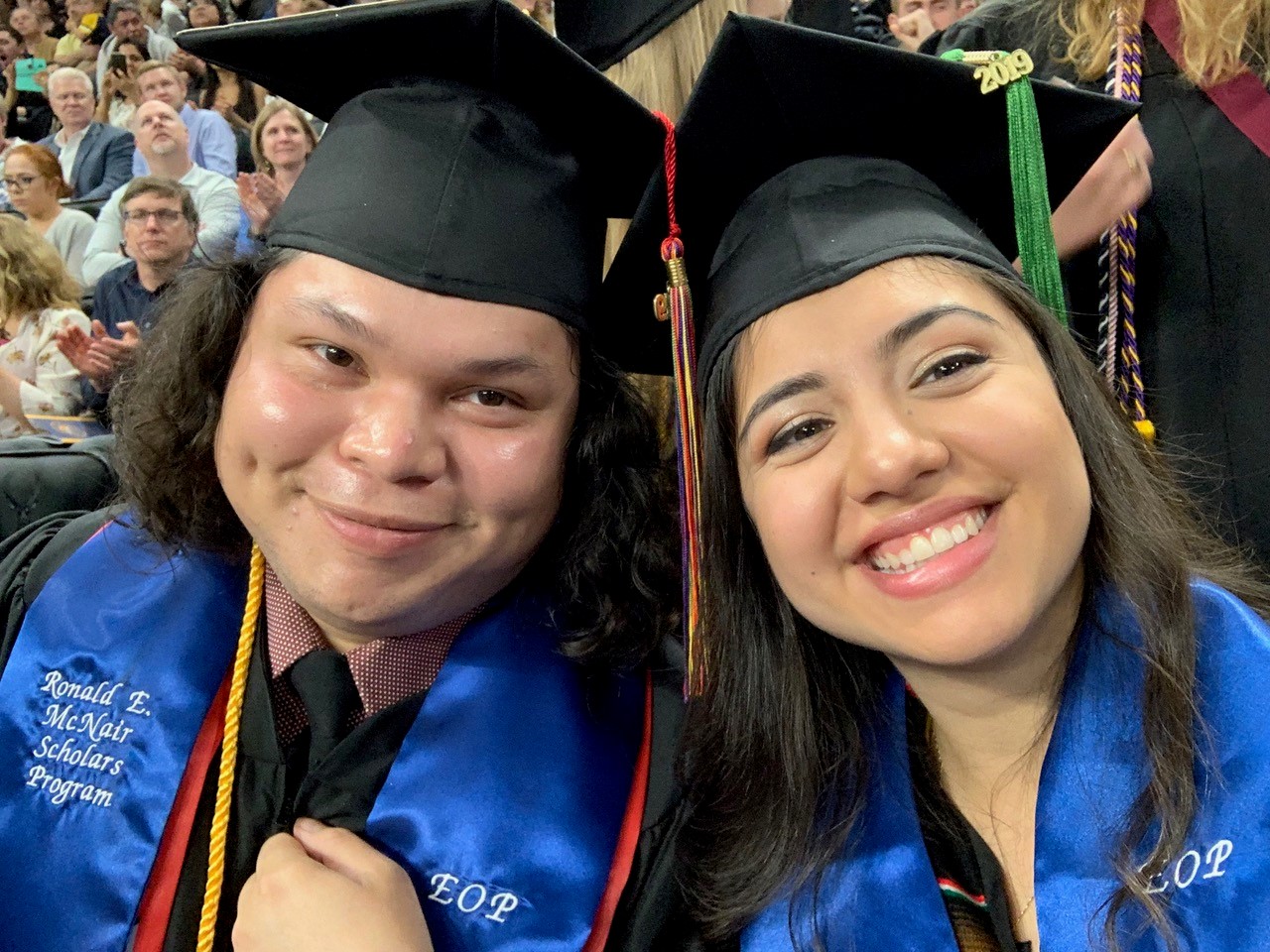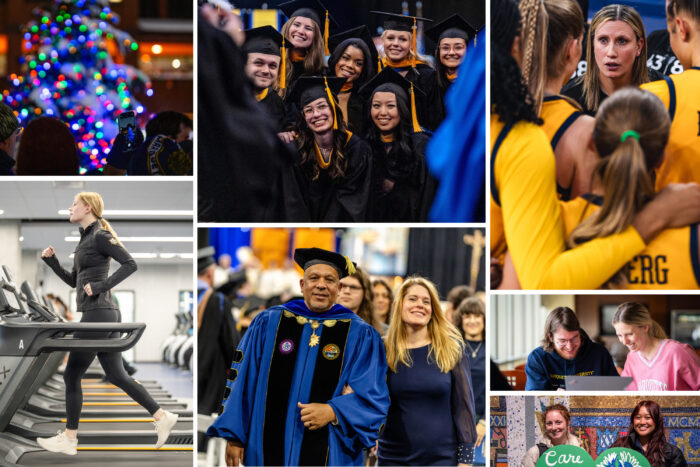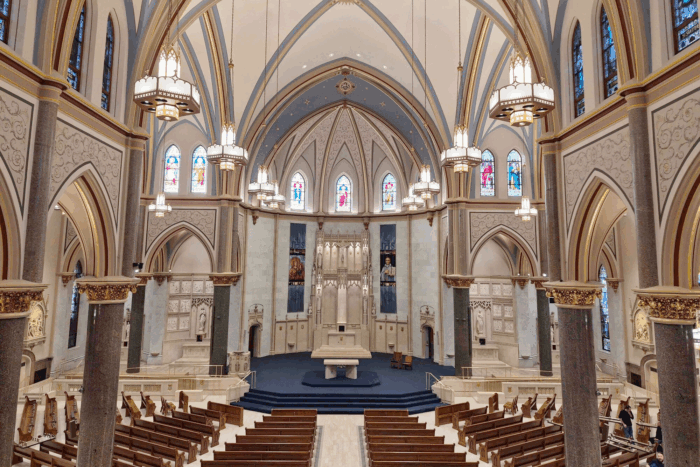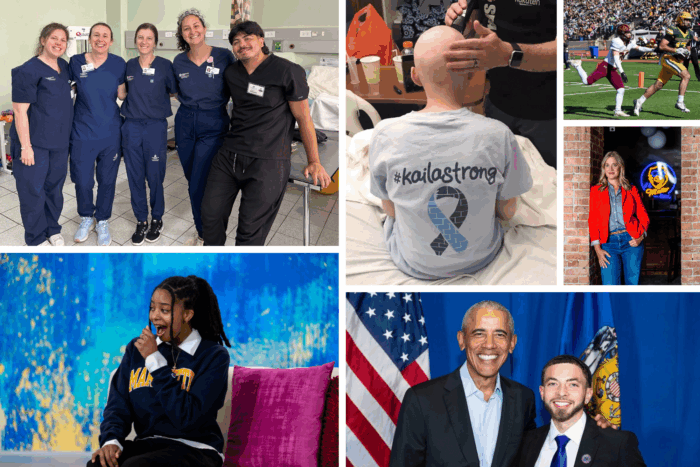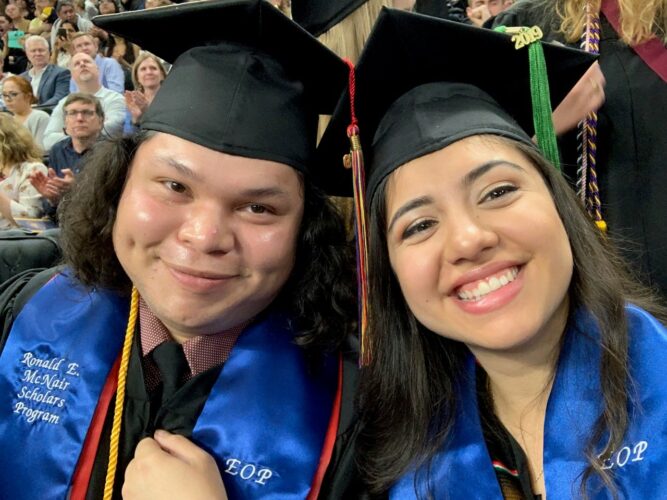
By Andrea García, graduate assistant in the Office of Institutional Diversity and Inclusion
Last fall, while sitting in the Weasler Auditorium, I listened to guest speaker Saúl Flores describe the sacrifices that his immigrant parents made for him and his sister to give them a chance at a better life. A knot formed in my throat as I thought of all the things my own parents had done for me so that I could be the first to attend college and search for true happiness and fulfillment.
As I turned to talk to Clara Dwyer, assistant director of the Center for Engagement and Inclusion, and Brittany Ramirez, a fellow graduate student, I realized I was not the only one. As our eyes flooded with tears, we could see the feelings were the same – our parents had sacrificed so much and given us everything they could. Despite having different backgrounds, our feelings as first-generation students were shared and deeply understood. As Clara put it, “We hold responsibility to be the future to our family.” This unspoken rule was one that weighed heavy on our shoulders.
After attending Marquette as an undergraduate and now being in the second year of my master’s program here, I cannot help but think how far I have come.
I found comfort in all corners of Marquette, something I never thought would have been possible when I first arrived on campus.
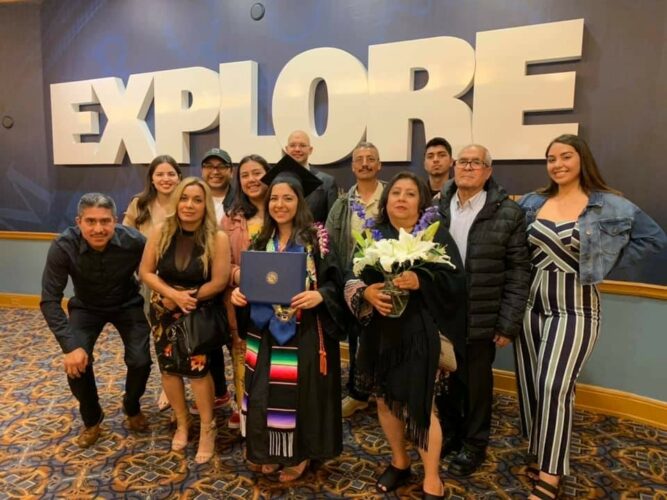
Alone, excited, nervous and overwhelmed. That is how I felt walking from my room in McCormick Hall to the Olin Engineering building at 8 a.m. for my very first general engineering class.
Wisconsin Avenue appeared to be overflowing with people from every imaginable background. Even my summer with the Educational Opportunity Program (EOP) could not have prepared me for this overwhelming feeling.
Walking into my class as a first-generation Mexican woman, I felt like I did not belong. Feelings of insecurity arose as I found my seat. As I looked around at the other students, I remembered how earlier that summer, a peer of mine had said my acceptance into several engineering programs was based on my background and my gender, not because I had actually earned it.
Was he right?
Months passed by and I could not seem to fit in. I found myself back home in Chicago every weekend. When on campus, I jumped with joy when someone spoke Spanish. Their words made me feel at home. When my mom called and asked how I was doing I would say, “todo está muy bien” – everything is fine – as I held back tears. Was I letting my parents down? They had come from México years ago to make sure I had opportunities they did not.
In the EOP office, Ms. Jackie Walker, my financial aid counselor, saw right past my wall. I was not okay. “What is wrong, baby girl?” she would say as she held me in her arms. I was not alone. For the next five years, she held me and wiped away every tear.
The pressure of becoming an engineer weighed on my shoulders. My maternal grandpa’s words haunted me, “mija, cuando crezca tiene que ser una abogada, doctora o ingeniera” (when you grow up you have to be a lawyer, doctor or an engineer). My estranged paternal grandpa was proud that his granddaughter was going to be an engineer. The president of my high school said I had the “golden ticket” if I wanted to be an engineer. My parents bragged about my major any chance they got.
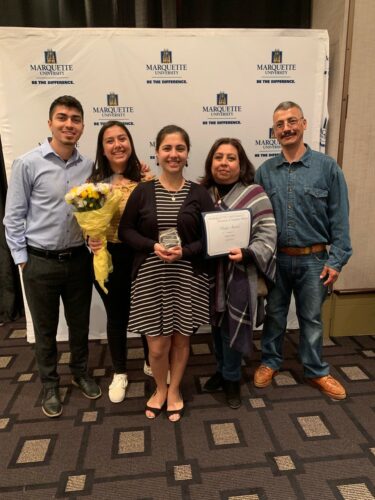
But…
My classmates seemed to understand what we were learning more than I did. Everyone seemed better prepared for exams that my all-nighters could not prepare me for. Everyone had a summer internship or research opportunity lined up. Everyone had a relative in the field or someone who could relate to what they were going through. Everyone except me.
I was a failure.
As Thanksgiving break approached, I decided to apply to the Border Awareness Experience, a Marquette-sponsored program aimed at raising awareness around immigration and human rights issues. There, I met amazing people who all cared about social justice. One of those people was Gerry Fischer, who worked in Marquette’s Office of Campus Ministry.
Over the next five years, Gerry became my confidant. The person who encouraged me and made me believe I belonged. Naturally, Gerry knew I did not like my major. He knew. But my parents did not.
Sophomore year came around and my regular visits to Gerry’s office and Ms. Jackie’s office became a “must” to get through my day. Everything changed when they both asked me what I really wanted to do. Stunned by the question, I did not know. My vocation seemed to be helping people and working with them. But my duty seemed to be to live out my family’s wishes.
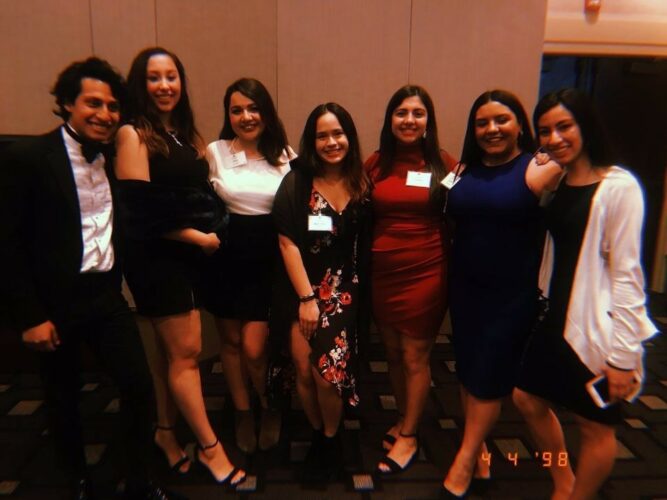
That spring break I went to Nicaragua with Global Brigades, a non-profit student-led global health and sustainable development organization, where I met Michelle Schuh, assistant dean in the College of Health Sciences. Michelle saw my interactions with local residents and said, “You know I keep on forgetting you’re an engineer. I think you are one of us.” By “us” she meant health care practitioners.
I then embarked on a vocational search with Michelle. She guided me and helped me make a plan to find out what my true vocation was. While on this journey, my parents had no clue what was going on. I was hiding this from them and feared I would disappoint them.
That same summer, I was in Poland for MAGIS, where people come to pray, do service, pilgrimage, etc. to prepare for World Youth Day, a program of religious education and spiritual formation for youth. My faith and the amazing people I met guided me to my true vocation: to be a bilingual speech language pathologist.
My path and mind changed when I decided to change majors. Telling my parents was the hardest thing I have ever done. They did not understand what it meant. As I told them about my plan, the room went silent. They thought I had “wasted” two years. They were saddened for not being there to accompany me on my journey.
Was I a bad daughter?
I began my junior year as a resident assistant in Straz Tower. For the three years I was an RA, every resident, RA and hall director helped me on my journey.
It was Aaron McCoy, my hall director, who introduced me to the term “imposter syndrome”—something many first-gen students experience. It’s the belief that you are undeserving of your accomplishments—that you do not belong.
Naming what I was feeling changed my perspective. I began to understand that I was not crazy.
As an RA, I discovered I became protective of my residents and wanted to help them in the same way Gerry and Ms. Jacki helped me. I wanted to shield my residents against any feeling of isolation. I wanted to direct them to people and places I had not connected with myself until I was much older than my residents were.
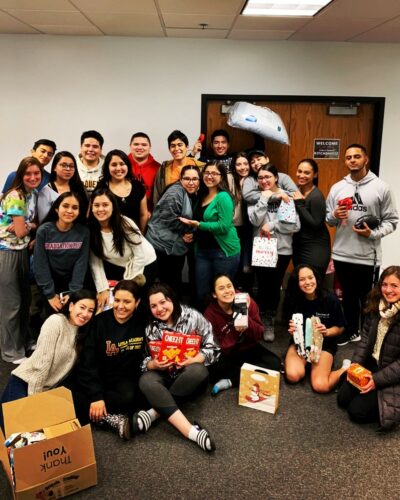
My own journey led me to staff members and confidants like Bernardo Ávila Borunda, Eva Martinez Powless, Marla Guerrero and Jacki Black. I was not alone, and neither were my residents.
By the time graduation came around, I found that I had built a network of people whom I could turn to. I found comfort in all corners of Marquette.
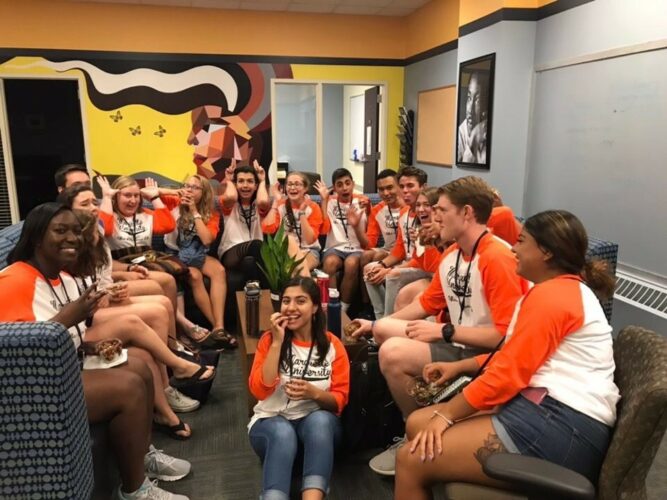
When applying to graduate programs, unlike when I applied to college, I had people I could talk to about the process. I was prepared and knew what to expect. I had a support group.
I was not alone. I was not a failure.
I had made it.
Remembering how it all started makes me realize how I was never alone, there were always people there willing to help me along the way.
Clara shared that feeling of being alone, and unfortunately it is one that many first-generation college students feel.
A PhD student and a first-generation student herself, Clara works with “I’m First,” a student organization dedicated to empowering and celebrating the journeys of first-generation Marquette students.
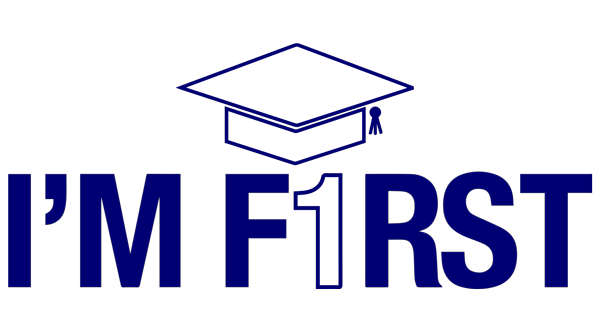
I asked her what advice she has for first-generation students. “It’s important to be kind to yourself and ask for help. It’s never too early to ask for help. People want to help… you are not in this alone,” Clara said. She added that “it’s okay to make mistakes! Growing means learning about yourself in relation to others and with the world.”
First-generation students make up 22% of Marquette’s undergraduate student body, and Clara and I’m First are actively working with various offices across campus to make first-gen students feel welcome at Marquette.
In fact, there are a number of first-generation faculty, staff, and university leaders like Provost Kimo Ah Yun who are first-generation themselves. Our backgrounds may be different, but we are all in this together.
I am not alone. You are not alone. We are all in this together. We are all Marquette.
Visit Marquette’s First-generation Student website to learn more about Marquette’s First Generation College Celebration.

